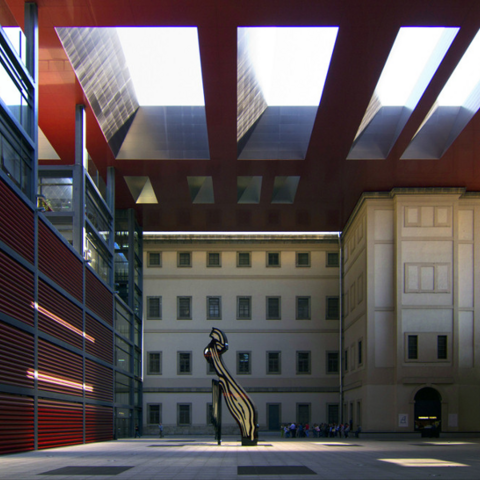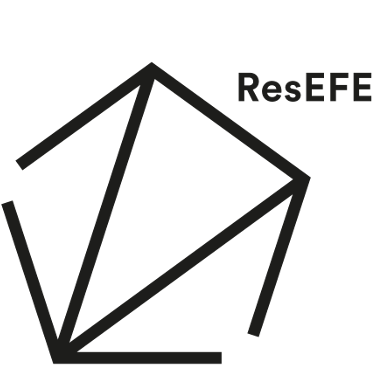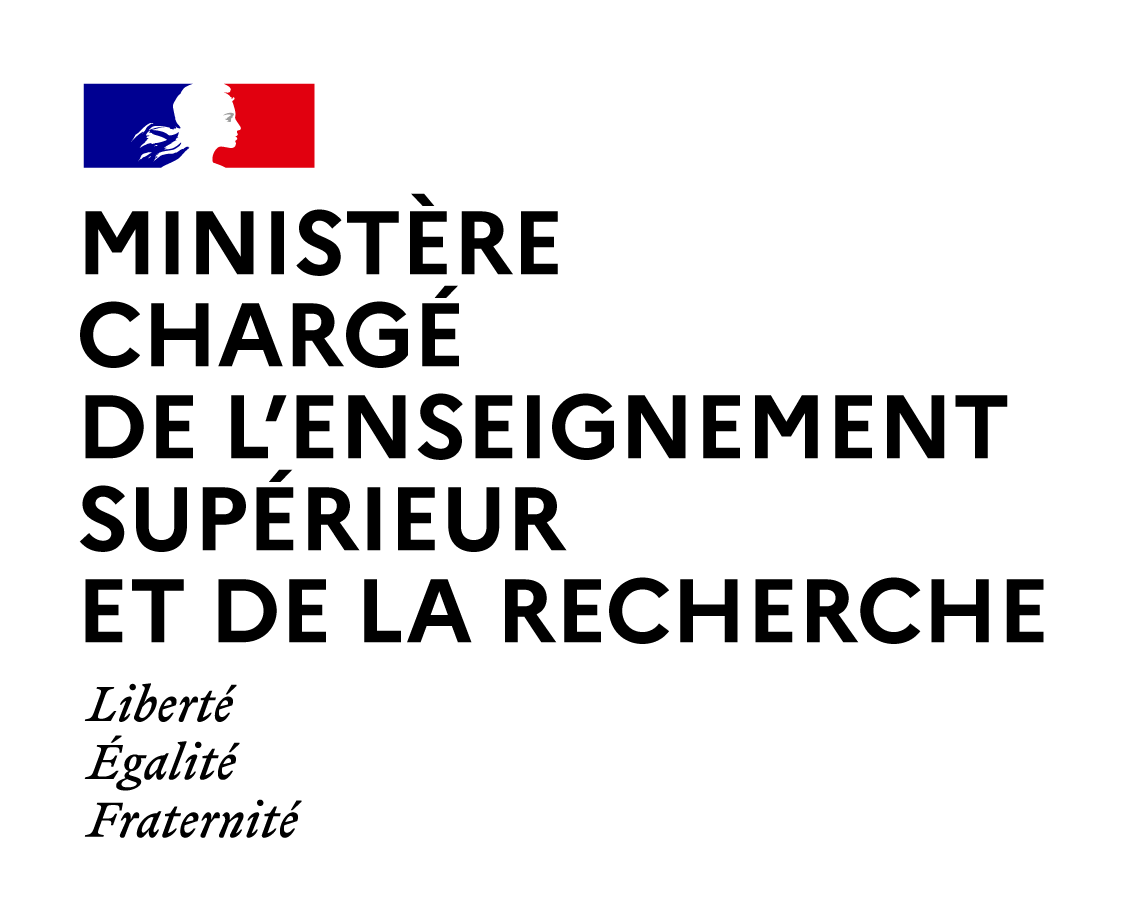Coord.: Jesús CARRILLO CASTILLO (Universidad Autónoma de Madrid), Cyril ISNART (CNRS / UMR 7307 IDEMEC, Aix-Marseille Université), Nicolas MORALES (EHEHI, Casa de Velázquez), Dominique POULOT (Université Paris 1 Panthéon Sorbonne)
Org.: École des hautes études hispaniques et ibériques (Casa de Velázquez, Madrid), Universidad Autónoma de Madrid, UMR 7307 IDEMEC, CNRS / Aix-Marseille Université, Université Paris 1 - Panthéon Sorbonne
Coll.: Museo Nacional Centro de Arte Reina Sofía
Registration required
Registrations closed
Dates: July 3rd to 5th 2019
Place:
Casa de Velázquez
C/. Paul Guinard, 3
28040 Madrid – España
Presentation
The museum and its open access to the general public results in a relationship between the State and citizens that is both symbolic and effective, a “museum reason” that, as D. Poulot has shown1, marks the beginning of democratic identities and constantly mutating legitimization systems. The museum institution, which is based on a system of public ownership of cultural goods and an egalitarian share of these symbolic goods, has very diverse origins in Europe, and sustains legacies that are more or less sympathetic of the collective political imaginaries of the Ancien Régime. The French scenario is, in this instance, unique, since during the revolutionary period of the Convention (1793-94), it imposed a foundational rupture, combining the museum authority with the project of a deep rework of the identity and the sovereignty of the people.
We then wish to address the contemporary history of the museum-democracy relation during the twentieth and early twenty-first centuries in southern Europe, with a focus on the analysis of museum institutions in relation to the popular sovereignty system from which their origin and justification derives, while taking the diversity of these imaginaries and democratic systems into account, from a transnational perspective.
The geographic and cultural area of southern Europe offers indeed a particularly productive field of study, since the diversity of experiences of breaks and democratic transitions in the twentieth century (France, Spain, Greece, Italy, Portugal, former Yugoslavia) makes it possible to observe the various issues and modes of investment in museums in the contemporary rebuilding of democratic citizenship. Comparing with France and Italy, which are among the first founding countries of the CEE, we intend to better understand the unique systems of museum-democracy relations in the European context, especially for southern countries who became members of Europe during the 1980s and 1990s and have achieved rapid democratization processes. In the institutional context, as in the field of the associative and cultural demands of minorities (ethnic, political, professional, sexual, colonial migration, etc.), competition or museographic conflicts strongly structure the museum expectations and imaginaries. Like the (re)working of democratic societies in southern Europe, the field of museographic practices presents itself as both a place for the development of a new identity that claims to be consensual, and as a sometimes painful place of negotiation of the different memories and identities that would like to be expressed. This focus on southern Europe seeks to open a new, more global, questioning of museum institutions from the very notion of the South, in order to study the material, architectural, administrative and professional reconfigurations of a democratic European cultural space from its side-lines. This angle of reflection, linked to the Southern turn, aims to study the circulation, reinvestment or the reconceptualization of museum practices on a global scale and in a South/South logic.
Finally, the diversity and the transformations of museum institutions (art museums, history museums, society museums...) will provide a further perspective from which to analyse, at the present time, the processes of representation and legitimization of democratic identities that are under construction or are in crisis. Focusing on the study of museum-democracy relations, we will also pay particular attention to the most recent transformation of identity and democratic values, since the end of the Cold War and particularly in the context of a current crisis of democratic representation. In the beginning of a twenty-first century so obviously marked by the phenomena that W. Brown has termed globalised “de-democratization,”2 the museum is surrounded by corporate logic, but, through the rise of social museology and the politics of participation, it also constitutes a central place of real democracy that seeks to collectively reorganise democratic possibilities and a popular sharing of common cultural goods.
Symbolic capital, political capital, economic capital and cultural capital are all part of the museum institution: their logic, their modes of interaction, their evolutions and their contradictions will be the subject of this summer school aimed at PhD students or post-doctoral researchers, as well as students enrolled on the second year of their Masters, whose research project is already at an advanced stage, and at professionals wanting to supplement their knowledge. The museum as a practice, as a utopia but also as a democratic promise can be approached from various disciplinary fields. Museum studies can, indeed, be undertaken by researchers of political history, the history of cultural institutions, cultural studies, political sciences, history of arts, sociology, anthropology or philosophy.
1. Dominique Poulot, Une histoire des musées de France, XVIIIe-XXe siècles. Paris, La Découverte, coll. « L’espace de l’Histoire », 2005.
2. Wendy Brown, Undoing the Demos. Neoliberalism's Stealth Revolution, Cambridge, MA, MIT Press, 2015.
Guest lecturers and instructors
- Manuel BORJA-VILLEL (Director of the Museo Nacional Centro de Arte Reina Sofía)
- Alexandra BOUNIA (University of the Aegean)
- Jesús CARRILLO CASTILLO (Universidad Autónoma de Madrid)
- Noemi DE HARO (Universidad Autónoma de Madrid)
- Nélia Susana DIAS (Instituto Universitário de Lisboa)
- Beatriz HERRÁEZ (Director of ARTIUM, Centro Museo-Vasco de arte contemporáneo, Vitoria)
- Cyril ISNART (CNRS / UMR 7307 IDEMEC, Aix-Marseille Université)
- Jesús Pedro LORENTE LORENTE (Universidad de Zaragoza)
- Nicolas MORALES (EHEHI, Casa de Velázquez)
- Bojana PISKUR (Curator of the Ljubljana Museum of Modern Art)
- Ilaria PORCIANI (Università di Bologna)
- Dominique POULOT (Université Paris 1 – Panthéon Sorbonne)















